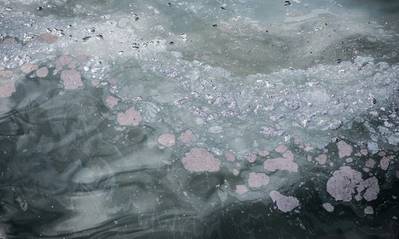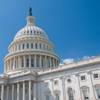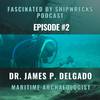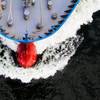A research team led by University of South Florida College of Marine Science professor Dr. Steven Murawski has been awarded a $1 million grant to explore how oil spills, such as the Deepwater Horizon (DWH) in 2010, impact the economic, ecological and social system aspects of fishing communities.
The Gulf Research Program (GRP) of the National Academies of Sciences, Engineering, and Medicine announced Thursday a total of $2.1 million in grants. Murawski’s team, which also includes Dr. Claire Paris, a bio-physical modeler from the University of Miami, and an environmental science and policy expert Dr. James Sanchirico from the University of California, Davis, will receive the grant funding over two years.
“We are deeply appreciative of the grant by the Gulf Research Program of the National Academies to pursue this important research. Our team represents expertise in biology, economics and oceanography and will provide information relevant to assess these real-world problems,” Murawski said.
The DWH spill released approximately two million barrels of oil into the water, resulting in significant impacts on coastal communities, especially in the western and northern Gulf, where many towns are co-dependent on both commercial fishing and the petroleum industries. Concern for the integrity and safety of the seafood supply during the DWH spill resulted in large-scale fishery closures, causing fishers to either travel long distances from ports to reach open grounds or re-locate to other ports adjacent to open fishing areas.
Using high-resolution, fishery-dependent datasets, Murawski’s multidisciplinary team will identify how individual communities were affected by the DWH spill, specifically those communities in coastal Florida, Alabama, Mississippi and Alabama. Working with key fisheries stakeholders and local decision makers, the team plans to identify adaptive strategies that communities could use to mitigate the effects of future oil spills. This project has the potential to transform disaster planning and fisheries management responses to such disasters in the Gulf of Mexico and elsewhere.
All three Gulf Research Program grants awarded Thursday support projects that will generate new insights, address critical questions, or lead to new approaches to interpreting data by bringing together concepts and methods from different disciplines. The grants also advance study design, tools, models and technologies for assessing human exposure to environmental contaminants, including acute or chronic exposures related to oil spills and other sudden and large-scale environmental disasters, and related impacts on individuals and populations.
“We’re pleased to support innovative scientific syntheses that can help us better understand the interdisciplinary challenges coastal communities face,” said Evonne Tang, GRP's director of external funding opportunities. “The new tools and products that the project teams develop would make existing data usable for stakeholders and decision makers.”














